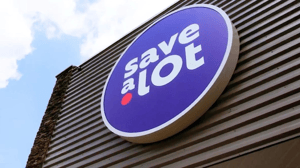Fresh Industry Advancing Worker Wellness in Produce and FloralFresh Industry Advancing Worker Wellness in Produce and Floral
New charter endorsed by more than 40 companies, including food retailers. The Ethical Charter on Responsible Labor Practices provides a framework for fresh industry sourcing for retail.
July 12, 2018

The Produce Marketing Association (PMA) and the United Fresh Produce Association have launched its Ethical Charter on Responsible Labor Practices, a framework for responsible labor practices in fresh produce and floral supply chains that promotes and reinforces occupational health and safety and worker respect and dignity.
The charter reflects, “how important our workers are and how we value them,” said United Fresh President and CEO Tom Stenzel during a media conference call on July 12.
Work on developing the ethical charter began in late 2015, when the boards of PMA, based in Newark, Del., and United Fresh, Washington, D.C., formed the Joint Committee on Responsible Labor Practices to develop an industrywide framework.
Founded on 13 guiding principles, the charter addresses wellness issues from occupational safety and health to responsible purchasing practices to protection of children and young workers.
As labor rules and regulations vary from country to country and state to state, the charter also seeks to provide a set of principles that are globally relevant, officials said.
“It’s an opportunity to bring a consistent and unified approach to responsible labor practices,” said Brian Kocher, president and CEO of Castellini Group of Companies and co-chair of the Joint Committee on Responsible Labor Practices.
To support its adoption across the industry, the associations are developing a set of reference tools for communication of best practices and to provide a common interpretation of responsible labor standards and their implementation.
“It’s important that we provide tools for adoption and a consistent interpretation of responsible labor standards,” said PMA CEO Cathy Burns.
PMA and United Fresh are leading with three initial tools that include an employer self-assessment tool, which asks companies to collect information on each of the 13 principles contained in the charter, as well as a measurement criteria tool and a responsible purchasing practices tool.
“The measurement criteria tool translates the charter into real-world applications,” Burns said, while the responsible purchasing practices tool “helps to facilitate adherence to the principles throughout the supply chain,” as well as “avoid and mitigate risk."
“These first three tools really rose to the top as what the industry needed in order to bring the charter to life,” continued Burns. “We don’t want to create things that are duplicative or don’t add value.”
PMA and United Fresh plan to expand these resources with educational webinars and other tools that inform the industry on the charter and its implementation.
The boards of PMA and United Fresh approved the charter in January, with more than 40 companies—including Albertsons, Costco, Kroger, Walmart and Wegmans—formally endorsing it.
“We’re seeking to grow the endorsements by the hundreds,” Stenzel said. PMA and United Fresh are encouraging companies throughout the produce and floral supply chains to add their endorsement at www.ethicalcharter.com.
In an industry rife with audits, the ethical charter doesn’t require certification. “The endorsement process is about making a pledge,” Stenzel said, “to abide by the set of principles."
“We are providing these resources to encourage additional companies to endorse the ethical charter and demonstrate a commitment to workplace safety, respect for worker dignity, compliance with applicable laws, and to building a shared understanding across the industry on responsible labor practices,” he said.
“We recognize and applaud all the good work already being done in this area both through advocacy and action, but we also recognize we have a responsibility to do more as companies and individuals to advance this cause,” Burns added.
Driving awareness of worker wellness and the importance of treating people with dignity and respect is not only the right thing to do; it also stands to strengthen the fresh produce and floral industry as a whole.
“The war on talent is what keeps people up at night,” said Burns, who added that implementation of the charter’s guiding principles provides “a competitive advantage for our industry” to attract talent from other industries, as well as young people starting their careers.
About the Author
You May Also Like






